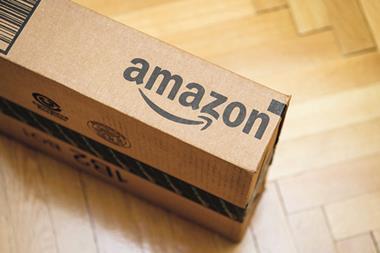Everywhere you look, Amazon has been in the news this summer.

The online retailer has signed up the old Top Gear team, introduced a one-hour delivery service in London and Birmingham and been criticised for the high-pressure working environment in its offices.
On top of that, Amazon is close to launching its grocery service Amazon Fresh in London. Speculation about the launch intensified when it emerged the company has agreed to lease new warehouses in Weybridge, close to the M25, and in Leicestershire, perfect for the launch of a national food delivery service.
Amazon has stayed typically tight-lipped about how it will use these warehouses. But make no mistake, Amazon Fresh is on the way. The retailer has made presentations to major food manufacturers in Britain and businesses helping Amazon with its plans have been forced to sign non-disclosure agreements.
None of the above is good news for Britain’s retailers. It underlines the ambition of Amazon, and demonstrates that its bid to shake up how we buy products has only just started.
Amazon Fresh promises to revolutionise how households shop for groceries. In California, It allows shoppers to buy food from their local bakeries online and automatically orders new toothpaste the moment existing supplies run out.
The company does not enter the new segment lightly, so Amazon will be aggressive in trying to claim market share.
For UK supermarkets, the inevitable arrival of Amazon has been feared since the company began selling food in a suburb of Seattle in 2007.
Tesco, Asda, Sainsbury’s and Morrisons are already under pressure from changing shopping habits and the rise of the discounters, so a new competitor is hardly welcome, let alone one valued at $250bn (£160bn). Partly due to the threat of Amazon, Tesco’s share price is heading back below 200p, a level not seen since boss Dave Lewis unveiled his turnaround plan in January.
The problem for supermarkets is that the US retailer is unlike any rival they have faced before. The company plays by a different set of rules to listed supermarkets. While Tesco has to juggle the cost of investing in its ageing supermarkets and cutting prices with keeping its shareholders happy, Jeff Bezos is running Amazon on the basis that profits will only come at a later date.
In his letter to shareholders every year, the Amazon founder reaffirms his disdain for short-term financial targets. In the 2015 edition, Bezos says: “A dreamy business offering has at least four characteristics: customers love it, it can grow to very large size, it has strong returns on capital, and it’s durable in time… When you find one of these, don’t just swipe right; get married.”
His approach explains why shares in Amazon soared 10% in one day last month when it reported a net profit for the last quarter of $92m.
So Amazon will work on its grocery service in the UK until it gets it right with customers. Its move into groceries is a threat to Ocado, the UK’s biggest online-only food retailer, but more so to the established bricks-and-mortar players.
Of course, the rise of Amazon has brought benefits to UK shoppers and the economy. It employs almost 10,000 staff, runs nine huge warehouses and will occupy an impressive new headquarters at Brookfield’s Principal Place.
But how much damage will Amazon do along the way? Its growth has hurt Britain’s high streets, and critics point out that it paid just £12m in tax to the Treasury. As supermarkets are about to find out, Amazon does not do sentimentality.
Graham Ruddick is senior business reporter at The Guardian





























No comments yet